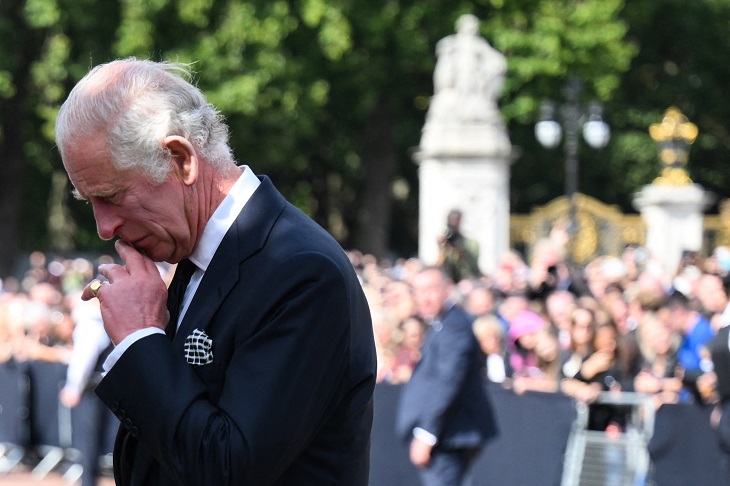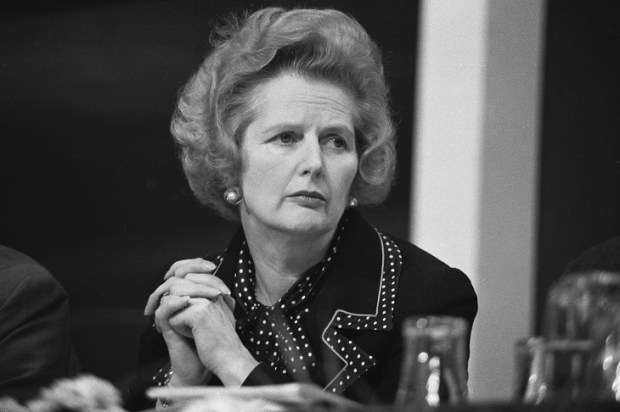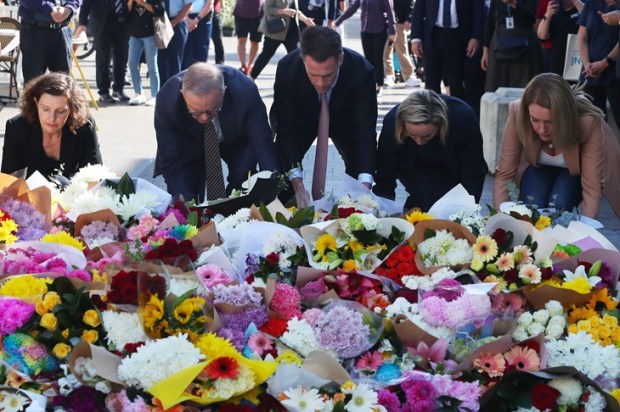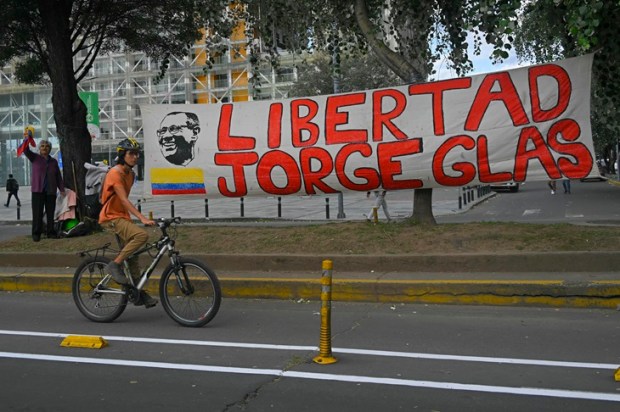Like periscoped sheep, the palace hordes startled back and forth, lunging the gates, devices bobbing – flopping above the fray into which they all tumbled. They scuffled to meet, but mostly just to prove–their–meeting–of, the new King.
By chance, I had been working in Wiltshire the day before Queen Elizabeth II’s passing. Mid–conference, when news of Her Majesty’s death broke, my first observation was that – save for some wise and dignified remarks from the boss, and the diligent contributions of some well–steeled Brits – no one quite knew what to do.
At dinner that evening – we were being hosted at an old aristocratic estate – the staff stood to attention, some silence was provoked, a vigorous shout of ‘Long live the King’ rang out, and esteemed colleagues made fine, concise addresses of tribute and remembrance. A wonderful young couple seated opposite me had hurried to buy black. I was relieved.
But the general milieu was unshaken by the day’s earthquake.
The liquor flowed as on any other night. The conversation was light, serious, silly, and profane by turns – as on any other night. ‘I feel a deep sadness,’ a wise American colleague had the decency to say, in private, amidst the oblivious bonhomie.
Our coach to London the next day took neither longer nor shorter than it should have. I was dismayed. No one was flocking to the capital to grieve in public. But it seemed no one was staying home to grieve in private, either.
On every billboard between Heathrow and Whitehall her face alternately shone with youth or glowed with wisdom. Westfield presents Queen Elizabeth in Black and White. Surreal.
Arriving at the hotel in Mayfair, and with some days off before returning home to Washington, I scoffed down whatever was in sight and hurried across the road to the Palace. What were the odds that I, an Australian, son of a South African and grandson of a Sri Lankan, would be here, on that one day out of 35,000 others in the span of the second Elizabethan Age?
I could have the privilege of mourning – not just for the Queen, but for the spectre of grace and diligence that emanated from her reign. For my grandfather, who served in her Army, played the piano donated by her family, and migrated between two of her realms. For the people for whom she meant more than I could ever know – the war wounded and widowed, the people who tied ribbons, baked cakes, and trained dogs for shows, who dressed smartly and hung her portrait proudly in dusty halls on dusty plains, in dusty farming towns, in the dusty country I grew up in.
That would be good, I thought.
But down there at Buckingham it was a dog show indeed. Those journalists stampeding like marked cattle. Those periscoped sheep surging forth to wherever fear of missing out and royal opportunity might intersect.
And when the standard went up, and out he came, stooped and sartorial, to meet his public, he might have had cause for bewilderment
For Charles III, more often than not, shook the hand of a mind tethered not to royal affection, but to its own demented voyeurism. The King looked not into the warm eyes of the old empire, but to the cold glass lens of the new one.
This was mourning as spectator sport. Which of course isn’t mourning at all. Only one in a hundred, nay, maybe a thousand, had the decency to wear black.
And through it all, the BBC – and every other Tom, Dick, and Harry with a microphone – kept vigil. Vigil in the way a hamster keeps vigil at its wheel. Constant, monotonous, unchanging, dumb.
There were some flickers of hope. Two American flight attendants had hurried down after their shift, pinned their wings to a rose and moved respectfully toward the fence to pay their respects. ‘That’ll end up in landfill, love’ – it didn’t take long for the locals to burst their bubble…
Another beautiful young woman dressed in black strode stoically alone through Green Park, fighting the tears that burst forth regardless.
And though I caught, but glimpses of them, I can say that those women knew how to mourn.
But I’m not so sure about the rest of us.
I’m not sure we knew what clothes to wear, with what posture to stand, what pace to walk at, and what manner to speak in. I’m not sure we understood that solemn pageantry and sacred ritual are to be experienced, not packaged into clips and discussed over dinner.
In the span of the Queen’s reign, and contra her steadfast grace and majesty, what remains of her Empire has undergone a profound revolution.
Lest that revolution in Britain not be conspicuous for any speed or bloodshed, it shall ever be for the sake of a propriety slowly surrendered, for decorum gradually lost.
Ben Crocker is a Ramsay Centre for Western Civilisation scholar, and constitutional fellow at the American Conservative, in Washington DC. Substack: Crocker’s Columns
Got something to add? Join the discussion and comment below.
Get 10 issues for just $10
Subscribe to The Spectator Australia today for the next 10 magazine issues, plus full online access, for just $10.


























Comments
Don't miss out
Join the conversation with other Spectator Australia readers. Subscribe to leave a comment.
SUBSCRIBEAlready a subscriber? Log in